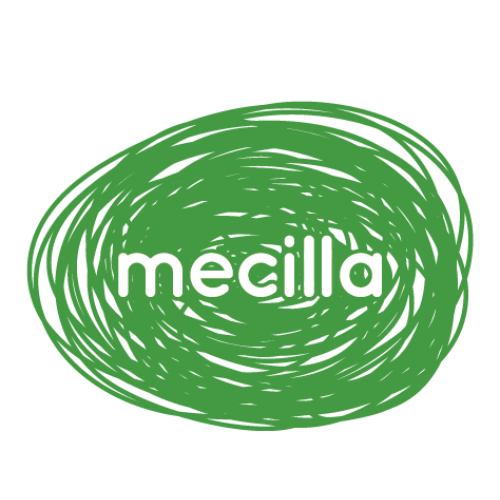About BCI
What is the Better Cotton Initiative?
The Better Cotton Initiative (BCI) is the largest cotton sustainability programme in the world. Last year, we and our partners provided training on more sustainable agricultural practices to 1.6 million farmers from 23 countries, and we mobilised €8.9 million in field-level investment. We are truly a joint effort, encompassing organisations all the way from farms to fashion and textile brands, driving the cotton sector towards sustainability.
Why does the Better Cotton Initiative exist?
Supporting farmers is at the heart of our work and is the reason for BCI’s existence. Cotton is a renewable resource, but its production is vulnerable to poor environmental management and working conditions. As stewards of the Better Cotton Standard System, our focus is on providing training and learning opportunities for farmers to adopt more environmentally, socially and economically sustainable production practices.
What is the Better Cotton Standard?
BCI manages the farm-level implementation of the Better Cotton Standard, a holistic approach to more sustainable cotton production. BCI licensed farmers produce cotton in a way that cares for the environment, minimising the negative effects of fertilisers and pesticides, and caring for water, soil health and natural habitats. This is what we refer to as ‘Better Cotton’. BCI Farmers also commit to decent work principles—conditions that support workers’ safety and wellbeing. The Better Cotton Standard is not applicable to the cotton supply chain.
How much Better Cotton do BCI Farmers produce each year?
BCI Farmers produced 2.5 million metric tonnes of Better Cotton lint in the 2015/16 cotton season, on 3.5 million hectares (which is more than the land mass of Belgium). This is enough cotton to make 2.5 billion pairs of jeans. Currently, Better Cotton accounts for 12% of global cotton production.
Who are the Better Cotton Initiative’s members?
At the end of 2016, BCI had 986 members spanning the cotton supply chain–66 retailers and brands, 846 suppliers and manufacturers, 31 producer organisations, 33 civil society members, and 10 associate members.
Is the Better Cotton Initiative competing with other cotton standards around the globe?
In 2016, less than 20% of global cotton production was independently verified as grown using more sustainable practices. BCI, organic,Fairtrade, myBMP (Australia), ABR (Brazil), Aid by Trade Foundation, and others work towards ensuring that all cotton is produced in a more sustainable manner. We have recognised three other standards as equivalent to ours, eliminating duplication and inefficiencies in the market. BCI supports farmers having the ability to choose which farming
system is best for them.
What is the Better Cotton Initiative’s view on forced and child labour?
Unfortunately, child labour remains a challenge in developing (and sometimes in developed) countries, particularly when families are struggling to make ends meet. The welfare of children and workers is always of paramount importance–forced and child labour on cotton farms is unacceptable to BCI. If either is discovered where Better Cotton is produced, it is considered an incidence of non-compliance with BCI’s standard and is dealt with immediately. We support farmers by helping them to understand and respect national legal requirements, as well as the fundamental, interrelated International Labour Organisation conventions on respecting the minimum age for young workers (C138) and avoiding the ‘worst forms of child labour’ (C182). BCI does not operate in countries where forced labour is orchestrated by the government.
Does the Better Cotton Initiative promote genetically modified (GM) cotton?
BCI has adopted a position of being ‘technology neutral’ with respect to GM cotton, and will neither encourage farmers to grow it, nor seek to restrict their access to it. We aim to be a mainstream initiative and target improvements across a range of important issues associated with cotton farming on a large scale. Today, nearly three quarters of the world’s cotton is grown with GM seeds. Therefore, if it is legally available in the country of use and there is an overall support package in place for farmers–which includes training and access to a range of farming options–BCI allows the use of GM cotton. It would be difficult to achieve our objective of making Better Cotton a mainstream sustainable commodity if millions of farmers were automatically excluded from our training and support.
How do I know if the Better Cotton Initiative is credible?
BCI is a member of ISEAL Alliance, the global membership association for sustainability standards. Only independently assessed, credible, and robust standards are granted membership. BCI and its fellow ISEAL members embrace the ISEAL Credibility Principles and comply with ISEAL’s internationally recognised Codes of Good Practice.
How is the Better Cotton Initiative funded?
BCI receives funding from three sources: earned income for services delivered; grants and donations from private and public funders; and volume-based fees and funding from brands. BCI Retailer and Brand Members pay a fee based on the amount of Better Cotton they source. These fees are channelled to the BCI Growth and Innovation Fund (BCI’s farm support programme) and matched by public and private donations. These funds directly support training and skill development for farmers around the world.
